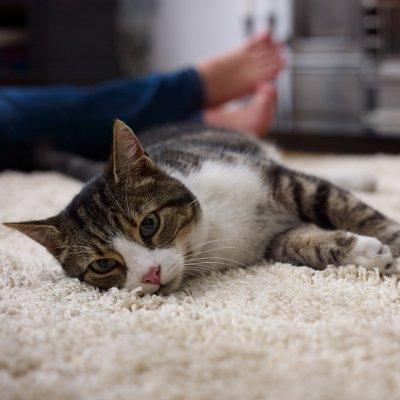There are many reasons your cat may indulge in house soiling behavior. House soiling is different than urine spraying, which is a feline marking behavior. Cats that mark territory with urine typically stand erect and back up to the target, to spray urine horizontally against vertical objects. Intact male cats have the highest incidence of spraying behavior, but even fixed cats of both genders may indulge particularly when they feel stressed.
What Is House Soiling?
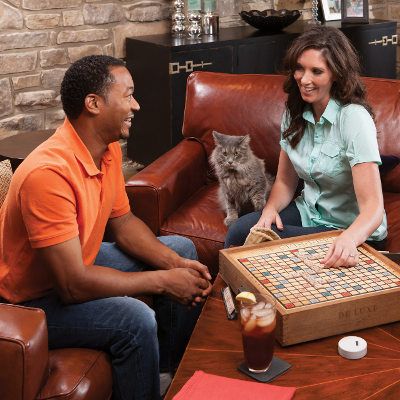 House soiling in contrast happens when the cat eliminates outside the litter box. Cats can house soil with feces, urine, or both, and the urine usually deposited downward on horizontal surfaces.
House soiling in contrast happens when the cat eliminates outside the litter box. Cats can house soil with feces, urine, or both, and the urine usually deposited downward on horizontal surfaces.
As with urine spraying, there can be different causes for house soiling, including health problems. Any kitty that has previously been "faithful" the box and suddenly begins to miss the mark should first be checked by the veterinarian. Treatment of a physical health problem often will fix the hit-or-miss potty behavior.
When house soiling is not prompted by a health issue, though, we consider it a behavior problem and must become pet detectives to figure out the cause. Again, there can be many factors alone or in combination that prompts your cat to snub the box. In almost all of these, though, an automatic litter box can drastically reduce or totally eliminate house soiling altogether by eliminating your cat's objections. Here's why.
Why Cats House Soil & The Automatic Litter Box Solution
The top reason for house soiling is that the cat's litter box is dirty. I recommend scooping out the box at least twice daily. Keeping the kitty potty pristine can be a challenge especially for busy pet parents who work long hours. A normal adult cat on average visits the litter box to make a deposit about 5 times a day. The amount of waste multiplies and makes cleaning a greater chore when you have more than one cat. Some years ago when I traveled a great deal for work, I became a fan of automatic litter boxes in part because my husband wasn't always as faithful at scooping.
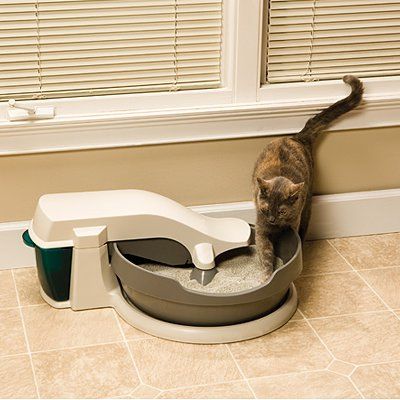 No Digging
No Digging
Cats hate having to step over, around, and through the waste to navigate and find a clean spot to dig. Wouldn't you? When you use a clumping clay product, the wet-soaked portions can turn into cement that's impossible to dig. With softer-clumping products, the cat walking on the clumps breaks them apart. Not only is it nasty to walk across for your cat, when he's being a good kitty he'd want to bury his waste to show deference to you. When he can't do that, he chooses other options. People cross their legs on long car trips to avoid nasty rest stops, and cats are no different--only cats aren't shy about finding a better spot.
Clear Playing Field
Some cats are so fastidious they object to a single soiled spot in the box even when there's plenty of room for more "puddles and plops."
Stink-aroony!
The odor of one pungent deposit alone can be very off-putting to cats, which means missing one day of clean-up can put your cats' tails in a twist. It takes very little time for a smelly box to train your cats to avoid their toilet and find a clean spot instead, like under the piano bench.
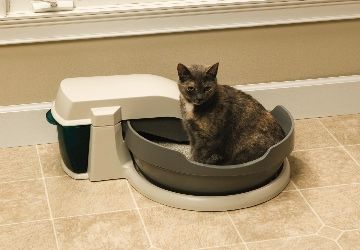 Occupied Sign
Occupied Sign
Many cats don't want to share facilities. It's not just about the dirty box, either, but also about the signature odor left behind by another cat's elimination. That tells the cats who come after that the litter box is already "owned" and occupied by a different feline. While some cats stare from across the room to "guard" the potty and keep other cats from using the facilities, others rely on their scent to keep away the other cats.
Finicky Habits
Every cat is different and while some simply refuse to "go" after another cat has used the litter box, others seem to want a different box for liquids and other for solids. That happens with singleton cats, too, so that the kitty faithfully uses the litter box as soon as it's scooped clean, but then snubs the box the rest of the day. Ew!
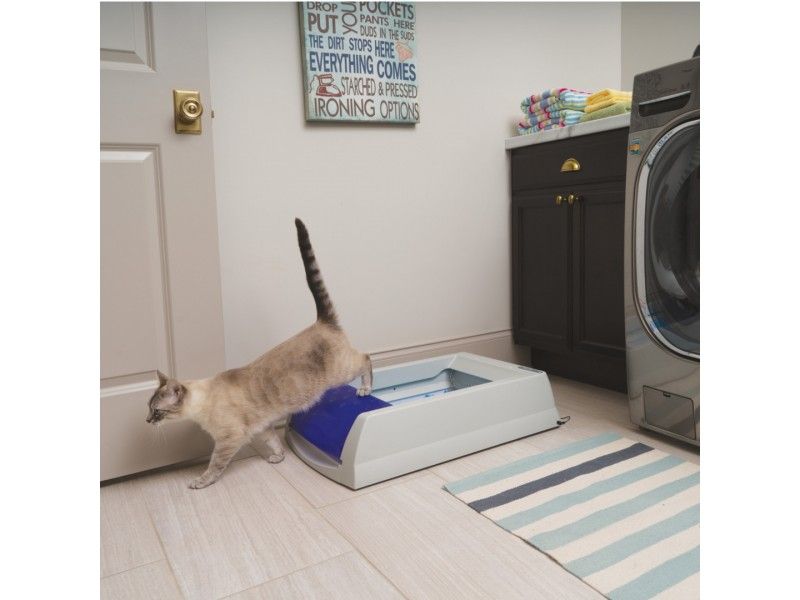 Today there are a variety of automatic litter boxes designed primarily for the human's convenience. The best of these also delight cats by addressing their top litter box complains. The automation offers a timed cleaning apparatus, often a rack or conveyer that moves solids and soiled clumps out of the litter box within a specific timeframe. The timing can be set with some systems, and others have a default timer, based on a motion detector that ensures the cat has finished doing his or her "duty."
Today there are a variety of automatic litter boxes designed primarily for the human's convenience. The best of these also delight cats by addressing their top litter box complains. The automation offers a timed cleaning apparatus, often a rack or conveyer that moves solids and soiled clumps out of the litter box within a specific timeframe. The timing can be set with some systems, and others have a default timer, based on a motion detector that ensures the cat has finished doing his or her "duty."
By automatically cleaning away the waste after every litter box visit, the box stays clear, odor is reduced or contained, and cats are guaranteed to always have fresh opportunities to legally leave their mark. An automatic litter box may be your cat's purr-fect solution!

